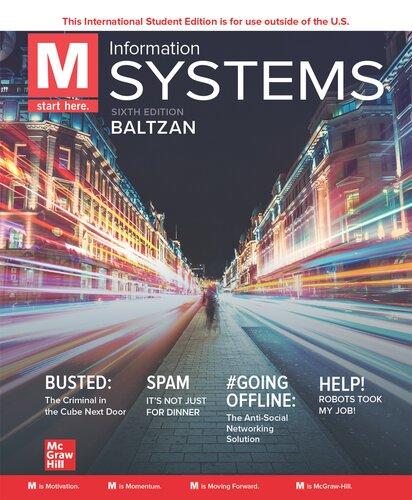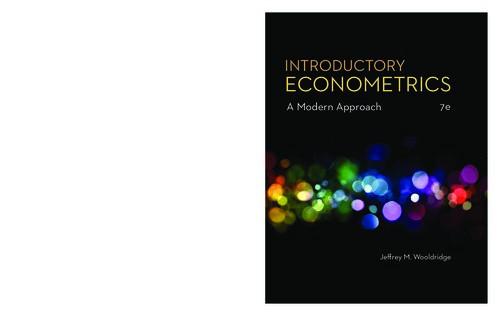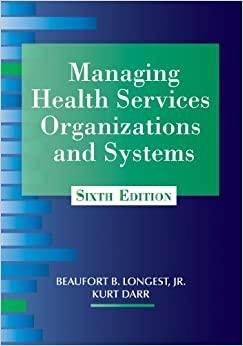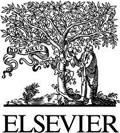Table of Contents
Cover image
Title page
Copyright
Contributors
Foreword
Preface
1 What is health systems science? Building an integrated vision
I.Theneedforcurriculainhealthsystemsscience
II.Therapidlychanginghealthcareenvironment
III Clinicianreadinesstopracticeintheevolvinghealthcaresystem
IV.Thethirdmedicalscience:Healthsystemsscience
V.Healthsystemssciencecurriculardomains
VI Casestudies:Renaldiseaseandtreatment wherebasic,clinical,andhealth systemssciencemerge
VII.Professionalidentityformation
VIII Challengesforlearnerstoengagehealthsystemsscience
IX Chaptersummary
X.Overviewofbookchapters
XI.Chaptertemplate
Questionsforfurtherthought
References
Annotatedbibliography
References
2. Systems thinking in health care: Addressing the complex dynamics of patients and health systems
I Burningplatformforchangeinhealthcaredeliveryandtheneedforsystems thinking
II.Systemsthinkinginhealthcare
III.Healthcaredeliveryascomplexadaptivechallenges
IV Thehabitsofasystemsthinker
V.Applicationofsystemsthinkingtohealthcare
VI.Chaptersummary
Questionsforfurtherthought
Annotatedbibliography
References
3. The health care delivery system
I.Desiredoutcomesofhealthcaredelivery
II CatalystsforchangeinUShealthcaredelivery
III Newmodelsofhealthcaredelivery
IV.Congruenceofcurrentdeliverysystemswithaccountablecareandpopulation health
V Closinggapsinthehealthcaredeliverysystem
VI.Chaptersummary
Questionsforfurtherthought
Annotatedbibliography
References
4. Health care structures and processes
I Introductiontothedonabedianmodel
II.Structuresacrossthecontinuumofcare
III.Processeswithinthehealthcaresystem
IV Clinicalmicrosystems
V.Futuredirections
VI.Chaptersummary
Questionsforfurtherthought
Annotatedbibliography
References
5. Value in health care
I.Introductiontovalueinhealthcare
II Knowledgeandeducationgapsinhigh-valuecare
III Definingvalue
IV.Valuefromstakeholders’perspectives
V AssessingthecurrentvalueofUShealthcare
VI Keyattributesofahigh-valuehealthcaresystem
VII.Barrierstohigh-valuecare
VIII Whatcanhealthcareprofessionalsdotopromotehigh-valuecare?
IX Chaptersummary
Questionsforfurtherthought
Annotatedbibliography
References
6. Patient safety
I.Introduction
II Basicprinciplesofpatientsafety
III.Specifictypesofmedicalerrors
IV.Factorscontributingtoerror
V Communicatingwithpatientsafteradverseeventsduetomedicalerrors
VI.Secondvictims
VII.Reportingsystems—mandatoryversusvoluntary
VIII Assessmentofriskandmitigationofmedicalerrors
IX.Evaluationofnearmissesanderrors
X.Patientsafetyimprovementstrategies
XI Changingthefutureofpatientsafety
XII.Chaptersummary
Questionsforfurtherthought
Annotatedbibliography
References
7. Quality improvement
I Qualityimprovementinhealthcare
II.Qualitymeasurement
III Qualityreporting
IV Qualityimprovementmethods
V.Commonqualityissuesandsuccessfulinterventions
VI.Qualityimprovementscholarship
VII Chaptersummary
Questionsforfurtherthought
Annotatedbibliography
References
8. Principles of teamwork and team science
I.Introduction—teamsasacriticalaspectofhealthsystemsscience
II Thepromiseofinterprofessionalpractice
III.Teamsandcollaboration
IV.Evaluatingteamsandteamwork
V Understandinghealthsystems,systemsthinking,andteams
VI.Teamtraining
VII.Chaptersummary
Questionsforfurtherthought
Annotatedbibliography
References
9. Leadership in health care
I.Introduction
II Thehealthcareleadershipimperative
III Whoarehealthcareleaders?
IV.Theimportanceofclinicianleadership
V Influentialleadershiptheories
VI Guidingprinciplesofhealthcareleadership
VII.Healthcareleadershipcompetencies
VIII.Specificattributesforhealthcareleadersindifferentsettings
IX Pathwaystoleadership
X Newleadershiproles
XI.Chaptersummary
Questionsforfurtherthought
Annotatedbibliography
References
10 Clinical informatics
I.Rationaleandterminologyofclinicalinformatics
II.Useofclinicalinformaticsinhealthcaredelivery
III Secondaryuseofclinicaldata
IV.Outcomesandimplicationsofclinicalinformatics
V.Competenciesofclinicalinformatics
VI Chaptersummary
Questionsforfurtherthought
Annotatedbibliography
References
11. Population health
I Introduction
II Whatispopulationhealth?
III.Whyafocusonpopulationhealth?
IV Solutionstoimprovepopulationhealth
V Futureofpopulationhealth
VI.Educationinitiativesinpopulationhealth
VII.Chaptersummary
Questionsforfurtherthought
Annotatedbibliography
References
12
Structural and social determinants of health
I.Introduction
II.Casestudiesandexercise
III Howstructuralandsocialdeterminantsleadtoadversehealthoutcomes
IV.Structuraldeterminantsofhealthinequities
V.Socialdeterminantsofhealth
VI Interventionsfocusingonrootcauses
VII.Casestudyconclusions
VIII.Chaptersummary
Questionsforfurtherthought
Acknowledgments
Annotatedbibliography
References
13. Health law and ethics
I Introduction:Lawandethicsinhealthsystemschange
II Fiduciarydutyandconflictofinterest
III.Professionalself-regulationandmarketcompetition
IV Fraudandabuse
V Privacyandconfidentiality
VI.Healthinsurance
VII.Informedconsenttotreatment
VIII Medicalmalpracticeandredressingerror
IX Withholdingandwithdrawingcare
X.Chaptersummary
Questionsforfurtherthought
Annotatedbibliography
References
14 Health care policy and economics
I.Introduction
II.Coreprinciplesofhealthpolicy
III Coreprinciplesofhealthcareeconomics
IV.Theoriesandhistoryofhealthcarereform
V.ThepathtotheAffordableCareAct
VI ThemajorcomponentsoftheACA
VII.TheeffectoftheACAonpatients,healthcareprofessionals,andinstitutions
VIII.Policycontroversiesandchallenges
IX Chaptersummary
Questionsforfurtherthought
Annotatedbibliography
References
15. Application of health systems science competencies in patient care
I Introduction:Foundationalskillsforhealthcaredelivery
II Evidence-basedmedicine
III.Communicationskillsvianewtechnology
IV.Teamwork
V Professionalism
VI Chaptersummary
Questionsforfurtherthought
Annotatedbibliography
References
16. The use of assessment to support students’ learning and improvement in health systems science
I Introduction
II.Currentattentiontohealthsystemsscienceinmajorassessmentframeworksin USmedicaleducation
III Assessmentofknowledge,skills,andpracticeperformanceinhealthsystems science
IV.Student-directedassessmentstrategiesfortheclinicalworkplace
V Assessmentofteamperformance
VI.Chaptersummary
Questionsforfurtherthought
Annotatedbibliography
References
17. Looking ahead: The dynamic nature of health systems science, future trends, and the role of learners as change agents
I.Healthsystemsscience adynamic,rapidlydevelopingdomainandfieldof inquiry
II.Futuretrendsandtheirimplicationsforhealthsystemsscience
III Healthprofessionsstudentsandtraineesasmasteradaptivelearnersand changeagents
IV.Futuredirectionsforhealthsystemsscience
V Chaptersummary
Questionsforfurtherthought
Annotatedbibliography
References
Glossary
Index
Copyright
Elsevier
1600 John F. Kennedy Blvd.
Ste 1800
Philadelphia, PA 19103-2899
HEALTH SYSTEMS SCIENCE, SECOND EDITION ISBN: 978-0-323-69462-9
Copyright © 2021 by Elsevier, Inc. All rights reserved.
No part of this publication may be reproduced or transmitted in any form or by any means, electronic or mechanical, including photocopying, recording, or any information storage and retrieval system, without permission in writing from the publisher. Details on how to seek permission, further information about the Publisher’s permissions policies and our arrangements with organizations such as the Copyright Clearance Center and the Copyright Licensing Agency, can be found at our website: www elsevier com/permissions
This book and the individual contributions contained in it are protected under copyright by the Publisher (other than as may be noted herein).
Notice
Practitioners and researchers must always rely on their own experience and knowledge in evaluating and using any information, methods, compounds or experiments described herein. Because of rapid advances in the medical sciences, in particular, independent verification of diagnoses and drug dosages should be made To the fullest extent of the law, no responsibility is assumed by Elsevier, authors, editors or contributors for any injury and/or damage to persons or property as a matter of products liability, negligence or otherwise, or from any use or operation of any methods, products, instructions, or ideas contained in the material herein.
Previous edition copyrighted 2017.
Library of Congress Control Number: 2020932480
Publisher: Elyse O’Grady
Content Development Specialist: Sara Watkins
Publishing Services Manager: Catherine Jackson
Senior Project Manager: Claire Kramer
Design Direction: Renee Duenow
Printed in Canada.
Another random document with no related content on Scribd:
After his interview with the lawyer Kenneth came away feeling rather downcast and disappointed. He was walking towards the station, hoping to be in time to catch the Birmingham express, for he wanted to get back that night, as he had work that must be done the following day, when he heard a well-known voice behind him.
"Captain Fortescue, sir!"
He looked round, and saw old Elkington, panting with the exertion of hurrying after him.
"Excuse me, sir, for stopping you, but I was so pleased to see you again."
"How are you, Elkington?"
"Fairly well, sir; I'm living with my daughter now; I'm too old to take another situation. Have you found it, sir?"
"Found what, Elkington?"
"The letter you lost, sir."
"Yes, I found it three days ago; at least a friend of mine found it, in the cottage of an old woman not far from Birmingham."
"Then it wasn't Watson who took it, sir?"
"Yes, it was Watson; she and that bookseller between them. He was her half-brother, Elkington."
"Was he, indeed, sir? Well, I never knew that! I always suspected her, sir."
"I knew you did, Elkington."
"She didn't like you, sir; she thought you kept her in her place."
"She wanted it, Elkington."
"She did, sir; but she didn't like it for all that. It was a bit of revenge, I should say, sir."
"Partly, Elkington, perhaps; but she and her brother raised money on it, too."
He then told Elkington a little of what he had heard, in which the old man was deeply interested.
"Was the letter what you wanted, sir? I mean was it worth having?"
"To a certain extent, Elkington, but those two rogues had blotted out the most important word, lest I should ever see it."
"The rascals!" old Elkington exclaimed. "Well, well; I'm not surprised at anything that woman did."
The old man insisted on going with the Captain, as he called him, to the station, and stood respectfully on the platform with his hat in his hand as the train moved off.
Kenneth Fortescue did not see that he could do anything further in the matter at present, nor indeed had he either time or opportunity to make any other attempt to solve the mystery of his birth.
He was now at the head of a large and important branch of a great fire insurance company, and had much business to transact. How could he neglect his only means of livelihood, in order to attempt to investigate a matter
which baffled the legal mind of so clever a man as Mr. Northcourt?
Therefore, as the months went by, and brought with them a continuous stream of business engagements that filled up the moments of a busy life, there was left little time for thought or for brooding over the past. It was only when he had returned to his dull little sitting-room, and was resting by the fire for a short time before beginning his evening's work, that his thoughts would wander, in spite of himself, to Daisy Bank.
One evening, his eye fell on the photograph of Honister Crag, which was hanging over his mantlepiece. He looked back upon that walk with such happy remembrance. How much he had enjoyed it, and how far away it seemed now! He seemed to have lived a lifetime since then. He wondered how Marjorie was getting on. Was the hard work telling upon her? Could she keep her bright cheery spirit after so long a time spent in such dreary surroundings? It was six months since he had seen her. Was it really only six months? It seemed much longer.
Surely there would be no harm in his running over to Daisy Bank for an hour, the next time that he had a spare afternoon. He would be careful—very careful. Not a word or a look should reveal his secret. He would simply see her and come away, content if she were happy, and thoroughly satisfied if he knew no trouble was hanging over her.
At last the spare afternoon came, and he felt a great throb of pleasurable excitement as he got out on the Deepfields platform. Perhaps he should meet her on the road; it was the time when she usually took her walk.
But no, she was not there to-day. He walked on over the pit mounds to Daisy Bank. How long the way seemed! He passed the old cottage where his lost letter had lain so long; it was shut up and deserted. He hurried on now. Colwyn House was only a little further down the lane; he would soon be there, and would see her again.
He was going up to the door when he drew back in dismay. The windows were covered with dirt; several of the panes were broken; the steps were a mass of mud; the small garden was overgrown with weeds; the house which Marjorie had brightened by her presence was left untenanted and utterly desolate.
He stood looking at it for some moments in Hopeless bewilderment. A lad, who had come from his work in the pit, was standing near, leaning against a broken-down wall.
"How long has this house been empty?" asked Captain Fortescue.
"Six months, or maybe more," said the boy. "Have they moved to another house here?"
"No; they're gone."
"Gone where?"
"I don't know. Right away somewhere; down South."
"Why did they go?"
"The master fell down dead; soon after New Year it were."
"Do you know if Miss Douglas went with them?"
"Who did you say?"
"Miss Douglas."
"Never heard of Miss Douglas. They've all gone, so I suppose she did."
That being all the information he could extract from the boy, Captain Fortescue returned to the station, feeling much depressed by the result of his expedition. What had become of Marjorie Douglas? Would he ever be able to discover? He thought once of writing to Rosthwaite to inquire, but on second thoughts, he dismissed the idea promptly. What right had he to make such an inquiry? None whatever; nor did he see any prospect that such a right would ever be his.
So he went back to his hard work and his lonely life as contentedly as he could, and tried to banish the restless thoughts that came to disturb his peace of mind. He determined to take day by day as each came, doing the day's duty, bearing the day's care, and not allowing himself to indulge in daydreams of the future, which were never likely to become more than dreams.
CHAPTER XXIII
A MOST CHARMING GIRL
WHEN the autumn came round again, it found little change in Kenneth Fortescue's life, save that he had risen
very rapidly in the esteem and confidence of his employers, and had been entrusted with the supervision of their agents in a still larger district.
Nothing, however, took place of a personal interest until the fourteenth of October. It happened to be the anniversary of the day on which Marjorie had come to him the year before, and which would ever be a red-letter day in his life, when he was requested by the head office to travel northwards, that he might investigate the amount of damage caused by a great fire that had taken place in a nobleman's castle, which was very heavily insured in his company.
Eagleton Castle was a most ancient building, filled with countless heirlooms of olden times. The picture gallery was hung with paintings by the famous artists of many successive generations; the grand staircase was of carved oak; several of the palatial rooms were wainscoted; whilst the great fireplaces were surrounded by exquisite carvings, the work of some forgotten genius, long since dead, who had left behind him these beautiful trophies of his skill.
These old mansions are exceedingly picturesque, and lend themselves to the work of the artist and the photographer, providing them with subjects for some of their best and most taking pictures, but they are oftentimes extremely unsafe. The builders of olden time, in spite of the roaring fires which in those days blazed nightly on the hearth, built the wide chimneys with little regard to the necessity for care in the matter of fire.
An old beam, in the near neighbourhood of one of the chimneys in Eagleton Castle, had become ignited; the fire had smouldered on for hours, completely hidden from sight, and unperceived by the large household of the castle. But in
the middle of the night, a gale arising and blowing down the wide chimney shaft, had caused the smouldering fire to burst into a blaze; the floor of an adjoining room had been caught by it, and when the Earl and his household were at length aroused the fire was becoming serious.
Fire engines were at once summoned by telephone, and were soon on the spot; the servants were soon hard at work clearing the rooms in the vicinity of the fire; the numerous guests, headed by the Earl himself, carried out armful after armful of valuable heirlooms and piled them on the lawn in front of the castle; the firemen worked on manfully, but several hours passed before the flames were extinguished.
The damage done to the building was great; several ancient rooms were destroyed; but the most serious loss, in the Earl's estimation, was that of many of the works of art in the picture gallery. Some of these were family portraits, dating back for many centuries, and the loss of which could never be replaced. No amount of money could bring the dead earls out of their graves to be painted afresh; no compensation from the insurance company could ever restore to the Earl of Derwentwater those much-prized and valuable mementos of his long line of ancestors.
Still, whatever compensation could be afforded, in addition to the cost of those articles which it was possible to replace, would have to be supplied by the company in which the Earl had insured for many years; and the head office, knowing the capability and thorough trustworthiness of Mr. Fortescue, had requested him to personally visit Eagleton Castle, that he might report to headquarters as to what would be the probable extent of their liability.
It was for the purpose of making these investigations, that Kenneth Fortescue stood on one of the platforms at New Street waiting for the northern express. As he was looking at the signals and watching the line, he suddenly felt a hand on his arm.
"Fortescue, you here! I'm delighted to see you again; I thought I could not be mistaken." It was Captain Berington.
Kenneth was pleased to receive so friendly a recognition from an old acquaintance, whom he had never met since the day he had left Grantley Castle, after telling them the story of his life, so far as that story was then known to him. He knew more about his early life now; but he was not at all anxious to let his former friends hear what had come to his knowledge, and moreover, he felt that he was in one sense worse off than he had been before. Then he had a name which he thought he could call his own; now he was nameless.
However, he was glad to see Captain Berington again; doubly glad that Captain Berington seemed pleased to see him.
"Here's the train, Fortescue; let's get a carriage to ourselves, and then we can talk."
"I've a third-class ticket, unfortunately."
"Never mind; we can settle up with the ticket-collector. Here's an empty compartment. Get in."
"Where are you going, Berington?"
"Home. I'm awfully glad I met you. Now tell me all about yourself."
Captain Fortescue told him what he was doing, and mentioned that he was on his way to Eagleton Castle.
"What a terrible fire that was!" said Captain Berington. "It does seem an awful shame when old places like that are burnt. Vi was very worried over it. You see, Lord Derwentwater is Kenmore's half-brother, and Kenmore is heir to Eagleton."
"Who is Kenmore?"
"Oh! Don't you know? Vi is engaged to him. In fact, they were to have been married last year if it hadn't been for that nasty accident of hers."
"What was that?"
"Oh! Haven't you heard? She was thrown from her horse in the hunting-field. Came down on her back, poor girl. It was an awful thing. We were afraid she would not get over it at first, and then, when she seemed to have taken a turn, the doctors discovered that the spine was injured, and said she would have to lie on her back for months. It's been a terrible time for her."
"It must, indeed. How long is it since her accident?"
"Oh, nine months or more. She is a great deal better now. She gets out on the terrace, and is beginning to walk a little. They talk of having the wedding next May if she is well enough, so that it will just have been postponed a year. Poor girl, it has been awfully hard lines for her; but the doctor hopes she may be quite strong by that time. By-theby, I've got a photo of her lying on the couch on the terrace. I'm just taking her a print of it; she hasn't seen one yet. I was at home a fortnight ago, and took it then."
"Then you are still keen on photography?"
"Yes, and I think this is a very good one. It was a nice clear September day, and I got a capital negative."
He was hunting amongst some papers in his pocketbook as he said this, and at last found the photo in question, and handed it to his friend for inspection. Captain Fortescue could not refrain from an exclamation of surprise as he looked at it. "You are astonished to see her so altered," said Captain Berington. "Yes, she is thinner, much thinner; still, she's wonderfully better than she was."
But it was not Lady Violet's altered appearance which had caused Captain Fortescue's exclamation of astonishment. He was not even looking at her; he was gazing with the greatest attention at something else in the picture. For on a low chair by the side of Lady Violet's couch, with her hat lying on the grass beside her, and with her lap covered with roses, which she was arranging in a china bowl standing on a garden table near her, was Marjorie Douglas!
He could hardly believe his eyes. For a whole year he had heard nothing of her; he seemed to have completely lost sight of her; and now at last he had found her, and in that unexpected place.
Captain Berington saw how earnestly Fortescue looked at the photograph; he thought that he noticed something more than mere attention in his gaze. Our eyes cannot always keep our secrets so well as our lips do, and there was a look in Kenneth Fortescue's eyes which told his friend a story about which his lips were sealed. But he interpreted that look wrongly.
"Poor Fortescue! I remember he was rather smitten with Vi once upon a time," he said to himself. "I ought not to have shown him that photo."
He put out his hand for it, that he might replace it in his pocket-book; but at first Kenneth did not seem to see.
"It's a beautiful photo, Berington! I suppose you haven't one to spare."
"Well, I am afraid not. I have another here, but I promised it to Miss Douglas; she wants to send it to her mother."
"Is she—"
Kenneth paused. He was going to say, "Is she well?" But that might have let out that secret of his, which his lips must guard with care. Captain Berington noticed his hesitation, but put it down to quite a different cause.
"She's an awfully jolly girl; she's a kind of companion to Violet—quite a lady though! It has made all the difference in the world to Vi having her."
Kenneth did not answer. He handed the photo back, though he would much have liked to have slipped it into his pocket.
"You've no idea what a nice girl Miss Douglas is! She is always good-tempered and cheerful, and never gets put out when poor Vi is cross. I'm sure we were awfully lucky to get her. She really is a most charming girl."
Kenneth Fortescue did not speak; perhaps because the words had moved him too deeply. And when, soon after this, his friend left the train, and he saw the carriage and
pair waiting to convey him to Grantley Castle, a great feeling of loneliness crept over him as he leant back in the corner of the carriage.
Captain Berington was going to see her, to talk to her, and to give her the photo. And he thought her a most charming girl.
Kenneth wondered what Marjorie thought of him. Well, he must be glad that she was in a comfortable home, and was no longer toiling away amongst the pit mounds and coal dust of Daisy Bank.
CHAPTER XXIV
THE PICTURE GALLERY
WHEN, some hours after his parting with Captain Berington, Kenneth Fortescue arrived at his destination, North Eaton Station, he got out of the train with rather a heavy heart, and made inquiry of the stationmaster as to the best way to Eagleton Castle. He found there was a 'bus running from thence to the village, which was three miles away, and that this 'bus would start in five minutes. When he went out of the station he saw it at a little distance along the road, waiting for passengers. He jumped up beside the driver, and soon the jolting vehicle was carrying him towards Lord Derwentwater's beautiful old mansion.
North-country men have always plenty to say, provided that they do not live too far North and across the Border. There, the Scotch caution causes the words of the Lowlanders to be few, and their opinion on any subject hard to obtain. "I canna tell," or, "I wouldna like to say," will be all the reply you will obtain to your inquiry upon any subject. But with the North-country Englishman, it is different; out of the abundance of his heart his mouth speaketh, and he loves nothing better than to tell you what he has seen or heard.
The fire at Eagleton Castle, although it had taken place some days before, was still the great topic of conversation on the village 'bus; and, finding that Captain Fortescue was a stranger, the driver and the passengers united in giving him a detailed account of it, each being particular to relate how he or she had first heard of the fire, and how he or she had felt when the news was received. When these various versions had come to an end, Kenneth asked a few questions about the place to which he was going.
"Is it a large estate?"
"Tremendous; t' Earl, he is t' grandest man in all t' country round."
"Has he any family?"
"Neither chick nor child, and never had any."
"Who is heir to the property, then?"
"Lord Kenmore, brother to t' Earl. He don't come here much, though. Earl and him don't seem to hit it, somehow. They are only half-brothers, you see; t' old Earl was married twice, and the little 'un was born when his elder brother were growed up. Twenty-five years atween them. That was
a lot, wasn't it? They didn't seem a bit like brothers; did they now?"
"No; it was a great difference in age," Kenneth said, "one brother was old enough to be the father of the other."
"You're right there, sir," said an old woman on the seat behind, "and the old Earl's second lady were a Tartar—a Tartar, that's what she were!" she repeated, nodding her head to give emphasis to her words.
"Ay," said the driver, "and she did her best to get t' old Earl to leave his money (what wasn't tied up of it, you understand) to the little 'un. She couldn't get him the title nor yet the estate, but she got him all that she could."
"Ay she did that," said an old man; "she were a crafty one, were my lady."
"But I suppose she had to leave the Castle when the Earl died."
"Ay," said the old man, with a chuckle, "and we none of us shed a tear; we didn't, I assure you."
"Then the present Earl came here?" asked Kenneth.
"Yes; he'd been travelling in foreign parts, but he came home afore t' old Earl died, and he married a lady o' these parts too."
"Is she living?"
"No, she lies in t' churchyard over there; ye can see t' old church tower over them trees."
"Has she been dead long?"
"It'll be about a year now. Since my lady died, he has had a good few of his friends at the Castle; there was some of them there for the shooting; t' Castle was pretty full t' night of t' fire."
"Was Lord Kenmore there?"
"Not he; he don't come here if t' Earl can help it. He's got an estate down South somewhere; he got it from his mother's father, so I'm told. We don't want him here; do we, Betty?"
"No, we don't," said Betty, "chip of t' old block, that's what he is."
"Does the Earl live alone?"
"Well, so to speak, he is alone. There's the visitors, of course; but they come and they go, none of them stay more than a day or two. It's a pity he hasn't got a son or a daughter to keep him company; isn't it now?"
"You like him?" asked Fortescue.
"Yes, we like t' Earl well enough; he's a bit hard sometimes, so folks say."
"But we're mighty sorry for him," said the old man; "he looks that wretched sometimes, my Tom says. Tom is footman up t' Castle. Now, sir, you look ahead and you'll see t' Castle up on t' hill."
Captain Fortescue looked, and he saw before him the most beautiful old castle he had ever beheld. It was built of grey stone, which bore the marks of age, though not of decay. Its mullioned windows had looked out for centuries over the beautifully wooded park, for the Castle stood on
such high ground that it commanded a view of all the surrounding country; and the trees in the avenue which led up to it were many of them even older than the Castle itself.
Through this avenue of quaint oak trees Captain Fortescue walked, when he had left the 'bus at the great entrance gates. He lost sight of the Castle as soon as he entered the avenue, but he gazed with the greatest admiration on the loveliness which met his eye at every turn. Now and again there was a break in the trees, and he looked down a peaceful glade where deer were feeding in the shade of the silver birch wood; or he stopped for a few moments to watch a busy little stream which ran by the side of the road, and then disappeared beneath a rustic bridge into the depths of the woodland beyond.
The trees were putting on their autumn garb; the squirrels were running up the trees, busy in secreting the nuts and corn for their winter store; rabbits were scampering across the road to their holes in the mossy bank; a cock pheasant in his plumage was strutting along the road before him; and the whole place was alive with birds, which were singing gaily in the oaks overhead.
Then, as he drew near the Castle, he came upon an extensive lake, dotted with islands and surrounded by a plantation of lovely shrubs and ornamental trees. On this lake the swans were swimming gracefully in the sunshine of that autumn afternoon; the fish were splashing in the water; a covey of wild ducks had taken wing and were flying over the avenue; a heron stood at the edge of the water and was hunting for frogs. There was life and movement everywhere.
He looked at the Castle, and he marvelled at its beauty. He had thought Grantley Castle a fine mansion, but that was far more modern, and would not bear comparison for a moment with the ancestral home of Lord Derwentwater.
When Kenneth Fortescue had rung the bell which hung in front of the carved stone portico the door of the Castle was opened by a footman, to whom he handed his card, which bore his name and the name of the insurance company of which he was the representative.
"The Earl is expecting me, I believe," he said.
He was shown into a room not far from the entrance hall, in which the Earl was accustomed to transact his business. Here he found a gentleman of about his own age, sitting at a writing-table, and hard at work, with a voluminous correspondence spread out before him. He bowed as Fortescue entered, asked him to be seated, and told him that Mr. Montague Jones would arrive shortly.
"This is Lord Derwentwater's secretary, I suppose," said Fortescue to himself, as he watched his companion sorting and filing the letters with which the writing-table was covered. "But who in the world can Mr. Montague Jones be?"
After he had waited about a quarter of an hour, a stout man, with reddish hair, a florid complexion, and gold eyeglasses, made his appearance, and introduced himself as Mr. Montague Jones. He informed Kenneth that he was my lord's agent, and that my lord had requested him to conduct Mr. Fortescue, as the representative of the insurance company, to the scene of the late fire.
Leaving the secretary to continue his labours, Kenneth followed Mr. Montague Jones, as he led the way up a wide
flight of stairs to the upper floor of the Castle. So far he had seen no sign of the destruction wrought by the fire; but, as they went down a long corridor towards the west wing of the building, they came upon the room where the conflagration had begun. Everything was blackened by the smoke and drenched with water; the furniture was either destroyed or completely ruined; the handsome silk hangings of the windows were gone; and a horrible smell of burning and charred wood filled the whole place.
From thence they went into the other rooms in which the fire had raged, and as they entered each Mr. Montague Jones handed him an inventory of the valuable articles which that room had contained; the pictures, china, statuary, pier-glasses, and costly furniture with which it had been filled; the carpet, curtains and elaborate draperies which had covered and adorned it. These rooms were totally wrecked; the flames had spared nothing; the ruin was terrible and complete.
Then the agent led him on to the picture gallery, a long and wide corridor, having windows overlooking the lake in front of the Castle, through which the light fell upon the beautiful works of art which the gallery contained. The fire, however, had only reached one end of this corridor; some of the pictures were altogether unharmed, whilst others were merely discoloured by the smoke; but at that end of the gallery which lay nearest to the rooms in which the fire had broken out several large pictures had been totally destroyed, and many others had been hopelessly damaged.
"Portraits, all of them," said Mr. Montague Jones; "of priceless value to the Earl; family portraits that cannot be replaced. This one of the Earl himself, painted when he was a young man, has only just escaped."
What was it made Kenneth Fortescue start, as he looked up at that picture? What was it that made him deaf to the agent's voice, as he dilated on the Earl's loss?
The picture was that of a man of his own age, and the hair was his hair; the eyes were his eyes; the carriage of the head was his; the nose, the lips, the chin were the very counterpart of those which he had seen in the looking-glass that morning.
The portrait might have been his own portrait, painted yesterday.
What did it all mean? Was it just a chance coincidence? Or was it more? Was it the echo of the words he had read in that letter just a year before—"Mark this, Ken, you're as like your father as two peas are like?"
He wondered whether Mr. Montague Jones noticed the strange resemblance. No, he was a short-sighted man, and he noticed nothing. He was busily engaged with his papers, and with the notes he was making in his pocket-book for the benefit of the Earl. He saw nothing, he remarked nothing. He led Fortescue on to another picture, one much damaged, and which was hanging in a bad light between the windows. Kenneth looked at it absently. He spoke about it, but spoke as if he were in a dream.
As they passed that other picture on their way back through the corridor, Kenneth stood and gazed at it again. The likeness seemed to him more striking than before.
"There is no need to look at that one," said the agent; "it isn't damaged at all."
They left the picture gallery, and went down the wide staircase. Kenneth had no excuse for remaining longer. He
had obtained the information which he needed for the head office; he would be able to write to London, giving a full account of what he had seen. Why, then, should he linger? What reason could he give for doing so?
The agent was walking with him to the door, when the busy secretary came out of his den.
"Mr. Jones," he said, "the Earl would like to speak to Mr. Fortescue."
Kenneth Fortescue was not naturally a nervous man, and he was not oppressed by the grandeur of the place in which he found himself. He had moved in good society, and he was able to hold his own in whatever company he found himself. The presence of an earl was no more embarrassing to him than the presence of that earl's footman. But if ever a man showed signs of nervousness—if ever a man hung back on the threshold of a room, as if he dare not face the revelation that the next step might bring, that man was Kenneth Fortescue.
But Mr. Montague Jones had preceded him, and he heard himself announced.
"Mr. Fortescue from the Insurance Office is here, my lord."
"Come in, Mr. Fortescue. I want to hear the result of your investigation. I want to know—"
What did Lord Derwentwater want to know? He seemed to have forgotten. He was looking at the representative of the insurance company with a strangely puzzled gaze. Only for a moment, though. In the next, he recovered himself, and began to give an account of the recent fire, and of the
damage done by it, and his reasons for demanding so large compensation from the company.
Kenneth Fortescue looked intently at the Earl as he spoke. He wondered, as he did so, if he was looking at his own likeness, not of to-day, but of a quarter of a century hence. The features bore the strongest resemblance, but the hair was white, and the figure far less upright.
As the Earl spoke on, standing with his back to the fireplace, Kenneth stood facing him, apparently listening to his words, and yet in reality hearing nothing of what he was saying. He was looking for something—looking intently and eagerly. Why did the Earl keep his hands behind him? Why did he stand in that position all the time he spoke? How could Kenneth ever discover that which he so much wanted to know?
But at that moment there came bounding into the room a beautiful collie dog, white as snow and with long, silky hair. It ran to the Earl, and looked up into his face. It was his favourite dog, his constant companion. He stooped to pat it as he spoke, and, as Kenneth looked at the hand laid on the head of the collie, he saw at last that for which he had been looking—he saw that the little finger of the Earl's right hand had lost the last joint.
Then, in a moment, he knew what was the missing word in the letter found in the safe; he knew beyond all doubt that he was at that moment standing in the presence of his own father.
CHAPTER XXV
WAITING FOR THE ANSWER
"WELL, I do not think we need detain Mr. Fortescue any longer. I want to speak to you for a few moments on another subject, Mr. Montague Jones."
It was the Earl who spoke, and his words roused Kenneth from a feeling almost of faintness which had crept over him, as he looked at the hand laid on the head of the collie. He bowed to the Earl, and at once took his departure. That was not the time to approach the subject on which his thoughts were centred. If he spoke to the Earl, he must speak to him alone, and not in the presence of Mr. Montague Jones; and, moreover, in his present tumult of feeling, he did not feel capable of speaking at all. He required time for thought and reflection.
He walked down the avenue, seeing and hearing nothing. The beautiful scenery was completely lost upon him. He passed through the great gates, hardly noticing the lodge-keeper, who opened them for him.
He went on, not knowing or caring where he was going, having not the least idea what course of action he should take. He wanted to be alone to think.
He found himself at last on a hill covered with Scotch fir trees. He climbed to the top of it, and sat down on a fallen tree. There lay the beautiful old Castle beneath him—his home—the home of which he had been cruelly deprived by the man he had just seen—a man who had no right to the name of father. A great feeling of anger rose up in his heart
against this man, who was living in luxury and splendour, whilst his own son was struggling on, obliged to be content with the bare necessaries of life.
How could he ever pardon such heartless conduct? How could he ever forgive his father for his base desertion of him, when he was a helpless infant? His whole nature rose in revolt against such behaviour.
"'Forgive us our trespasses, as we forgive them that trespass against us.'"
Yes, he must forgive even this, if he would be the follower of Him who prayed for those who hung Him on the cross. He pleaded for help from above to enable him to do this, and as he prayed, he grew calmer.
Still he sat on, trying to plan what his next step should be. Should he go to Sheffield and see Mr. Northcourt? Or should he call at the Castle and ask for an interview with the Earl? Yet what if this interview was refused? What if the Earl had noticed the likeness, and, not wishing to own him, would henceforth be on his guard against seeing him again?
At length he determined not to go to the Castle, but to write. He would telegraph to the office that he was unavoidably detained at Eagleton; he would stay at the little village inn that night; he would despatch as soon as possible a letter to the Castle, and would await the Earl's reply. What would be the use of putting the matter in the hands of a lawyer, if his father were willing to own him? Why should their family affairs be brought under the notice of an outsider?
Kenneth returned to the village, sent off his telegram, and went to the Eagleton Arms. Then, after much thought and prayer, he wrote his letter.
He began by recalling to the Earl's memory events which had taken place twenty-five years ago. He reminded him of his early marriage to the girl he loved, of her death in the mining district in South Africa, and of the little boy she had left behind her. He asked him to think of the tiny deserted child, left in the custody of a common miner, with no evidence of his father's care save the money for his education. He then drew a sketch of the life of that child, at Eton and then at Sandhurst; brought up as far as his education was concerned in his proper position, but having as his only reputed relative the poor old miner, who had done all that in his ignorance was possible for him to do, to be a father to him. Then he described the death of that foster-father, and told of the letter that he had left in the safe.
Kenneth was careful to remind the Earl that the old man had faithfully kept the secret during his lifetime, according to his promise; but he told him that he had felt that, in making such a promise, he had done a great injury to the child left in his care; and that, therefore, he had written an account of what had happened in South Africa, and had left it with his will, to be opened and read after his death. Then Kenneth went on to tell the Earl that he was that deserted child, and to inform him that he had stood that day for the first time in his rightful home, and had beheld that day for the first time his own true father. He appealed to the Earl by all the love that he had had for his mother, by all the humanity of his heart, by all his sense of justice and right, to investigate the truth of his claim. He implored him to notice the remarkable resemblance between himself and the picture of the Earl painted when he was a young man, and he entreated him to allow him to come to the Castle again, that they might talk together, and that the Earl might more closely observe that resemblance. He ended his letter by saying that he was anxiously awaiting his reply at the
Eagleton Arms, where he should remain until that reply reached him.
It was late in the evening when the letter was finished, but he at once found a messenger and despatched him to the Castle. No sooner did he know that it was in the Earl's hands, than he began restlessly to await the answer. He felt as if he could not sit still a moment. He went outside and paced on the road; he reasoned with himself that no reply could possibly come that night; yet he still looked out for it.
But at length the Eagleton Arms was closing for the night, and he was obliged to give up his watch. He went to bed, but not to sleep. All night he was tossing about, wondering what the morrow would bring.
Then, with daybreak, he was up and out; he stood at the great gates, and looked at the morning light streaming down the avenue. What was that in the distance? Was it some one bringing the expected letter?
No, it was only a gamekeeper early at work, shooting the rabbits which were nibbling the short grass at the edge of the road. He went back to the inn and tried to eat some breakfast; but he felt as if he could not swallow it.
Then he watched again, and at last, at ten o'clock, a messenger came riding along the road from the Castle. He pulled up his horse at the Eagleton Arms.
Yes, he had brought a letter; the coronet was on the envelope.
The landlord was standing at the door. He took the letter and handed it to Kenneth.
"From the Earl," he said, "for you, sir."
Kenneth took the letter to his own room and opened it with trembling fingers. Then he read as follows: "EAG
LETON CASTLE,
October 15.
"DEAR SIR,
"The Earl of Derwentwater requests me to state that he has no knowledge whatever of the subject matter of your letter. There will therefore be no necessity for you to call at the Castle. He regrets that you have been so grossly misinformed.
"Yours truly,
"HAROLD MILROY,
"Secr etary."
Kenneth Fortescue felt as if he had received a heavy blow. What should be his next step? There seemed no object in remaining at Eagleton any longer. If the Earl flatly denied his claim, all that he could do would be to put the matter at once into Mr. Northcourt's hands.
Accordingly when he reached the railway station, he took a ticket for Sheffield, and arriving there some hours
"
later, he was just in time to catch the old lawyer before he left the office for the night.
They were closeted together for a long time in Mr. Northcourt's private room, and Kenneth gave an account of his visit to the Castle. He told the lawyer of the picture he had seen in the corridor, of his interview with the Earl, and of the convincing proof which he had obtained during that interview, that the Earl was the man mentioned in old Mr. Fortescue's letter, inasmuch as he had noticed that the joint on his right hand was missing, just as Mr. Fortescue had seen and had described.
Then he told Mr. Northcourt how he had written to the Earl, and he showed him the downright denial which the Earl had given in the answer which he had received that morning.
Mr. Northcourt meditated for some time on the case of his client; but the longer he thought of it, the more his legal mind saw great difficulties in the way of substantiating his claim.
There were several questions which would immediately be raised by the other side; questions which, if unanswered, or if answered in an unsatisfactory manner, would most certainly render Mr. Fortescue's claim invalid. Who was his mother—Lord Derwentwater's first wife? They did not even know her name. Where were they married? They had no idea. Were they married at all? They had no proof whatever of the marriage, except the declaration of an old man who was now dead, and who had only stated it on hearsay.
If the marriage had taken place in the neighbourhood of Kimberley, search might have been made for the marriage register; but apparently, according to the letter found in the
safe (to which Mr. Northcourt again referred, spreading it out on the table before him), the marriage, if marriage there had been, had taken place before reaching Africa in some place or other where his maternal grandfather had been chaplain; but what that place was, there was nothing in the letter to show, nor probably had old Mr. Fortescue ever known. Altogether it would be a most difficult case to bring forward, and undoubtedly further evidence would have to be obtained before the claim could be satisfactorily substantiated.
So Kenneth Fortescue returned to Birmingham, feeling as if he had been on the very threshold of Elysium, and then had been relentlessly drawn back into a land of toil, anxiety, and privation. It was hard to settle down again to the weary routine of his daily duties; the little back parlour had never seemed so dismal before. He was as far as ever from gaining his proper position in the world, and, whilst matters continued as they were, he saw no prospect of having a home of his own, and therefore no hope of being able to win Marjorie Douglas's love. And Captain Berington had every opportunity of seeing her, and he thought her a most charming girl.
Kenneth Fortescue was in very low spirits during those dark November days that followed. Heavy smoke-laden fogs rested on the city; the gloomy skies were not calculated to cheer him, and he had made no friends in Birmingham to whom he could turn to relieve the monotony of his life.
One Sunday evening he was walking through the muddy streets, which, with their closed shop windows, looked even more dismal than usual, when he heard the sound of a church bell. It was not the great church near his lodgings, and which he usually attended on Sunday. He had walked into a part of the city where he had not been before. It was
a small church begrimed outside with smoke, and possessing no beauty within, a plain, unadorned building in a poor part of the city. He thought he would obey the call of the bell and go to the service. Perhaps there would be some word for him there that evening.
The clergyman was a tall thin man with stooping shoulders, not attractive in appearance, and his voice was certainly not melodious. But he had got his message straight from his Master, and Kenneth Fortescue had been sent to receive that message.
The words of the text fell upon his heart like the soothing touch of a cool, loving hand upon the fevered brow.
"'O tarry thou the Lord's leisure: be strong, and He shall comfort thine heart; and put thou thy trust in the Lord.'" (Psalm xxvii. 14, Prayerbook version.)
Then came the simple sermon, devoid of all oratory, free from any attempt at grandiloquent language, as he urged his hearers to take the text as their watchword during the coming week. Each had his secret care; let him turn that care into earnest prayer. Then, having done that, let him wait patiently. God was sure to answer; but the answer must come in God's own time. Prayer cannot be lost; but we must not try to hasten God's hand; we must tarry the Lord's leisure. Then, doing that, we shall be strong and comforted.
The preacher ended with a verse, of which each member of the congregation was given a copy on leaving
the church. That verse was always kept by Kenneth Fortescue as one of his greatest treasures:—
"Oh, tarry and be strong; Tell God in prayer
What is thy hidden grief, Thy secret care.
Yet, if no answer come, Pray on and wait:
God's time is always best; Never too late."













